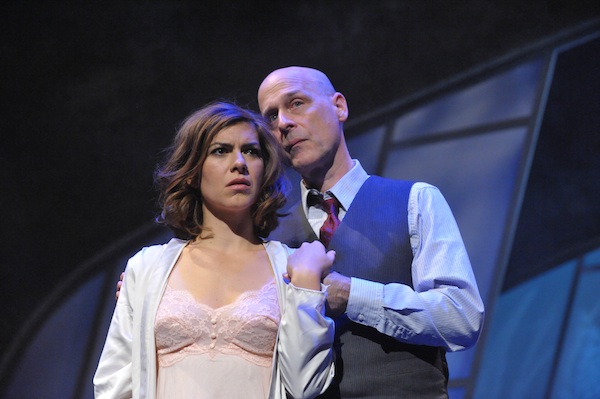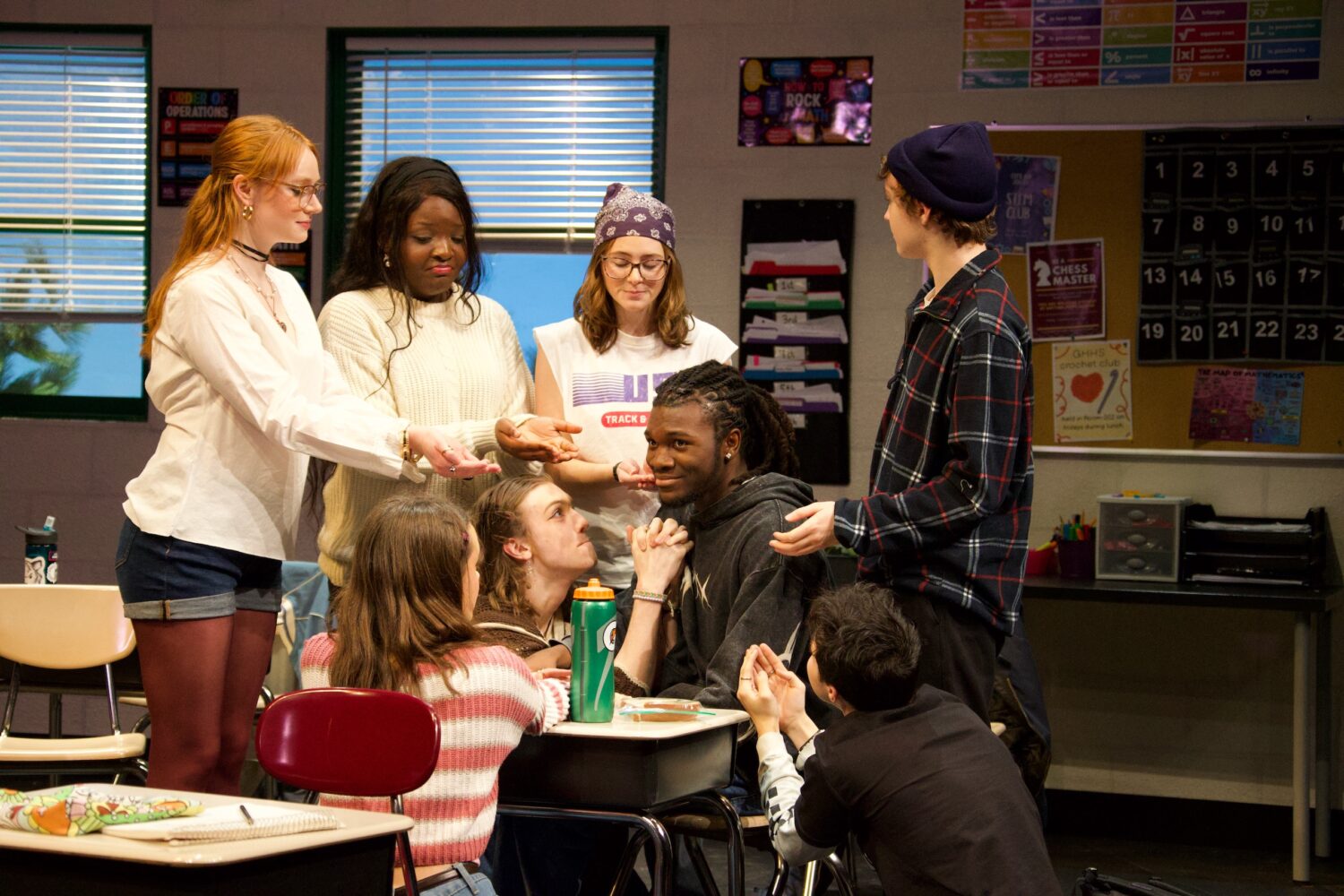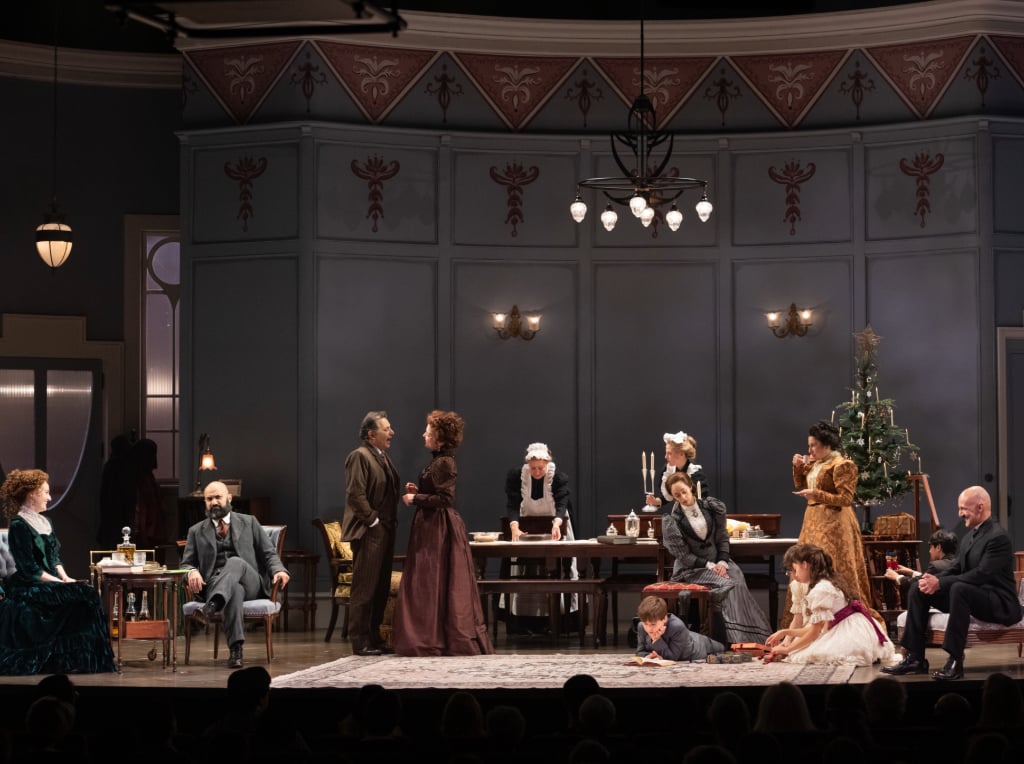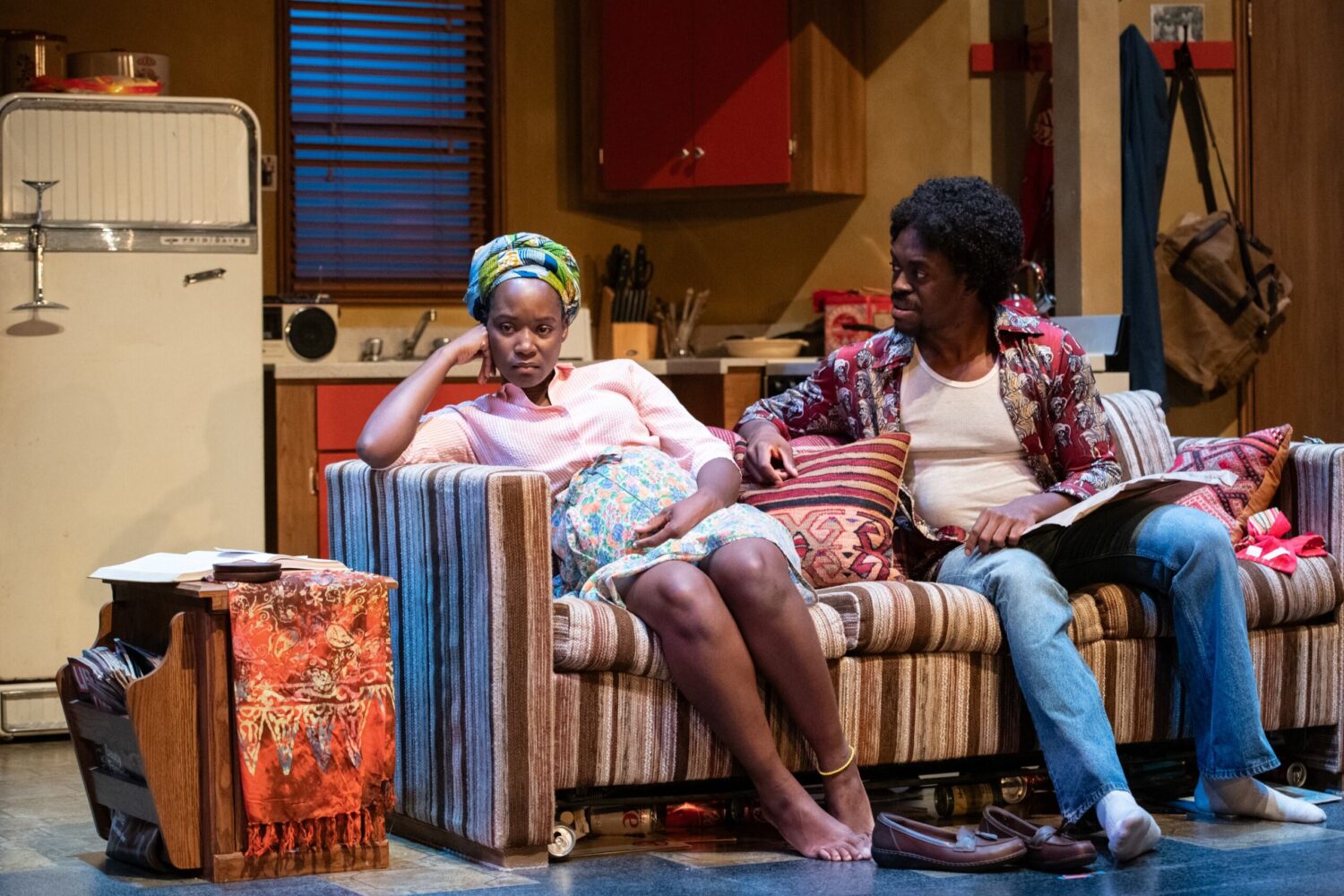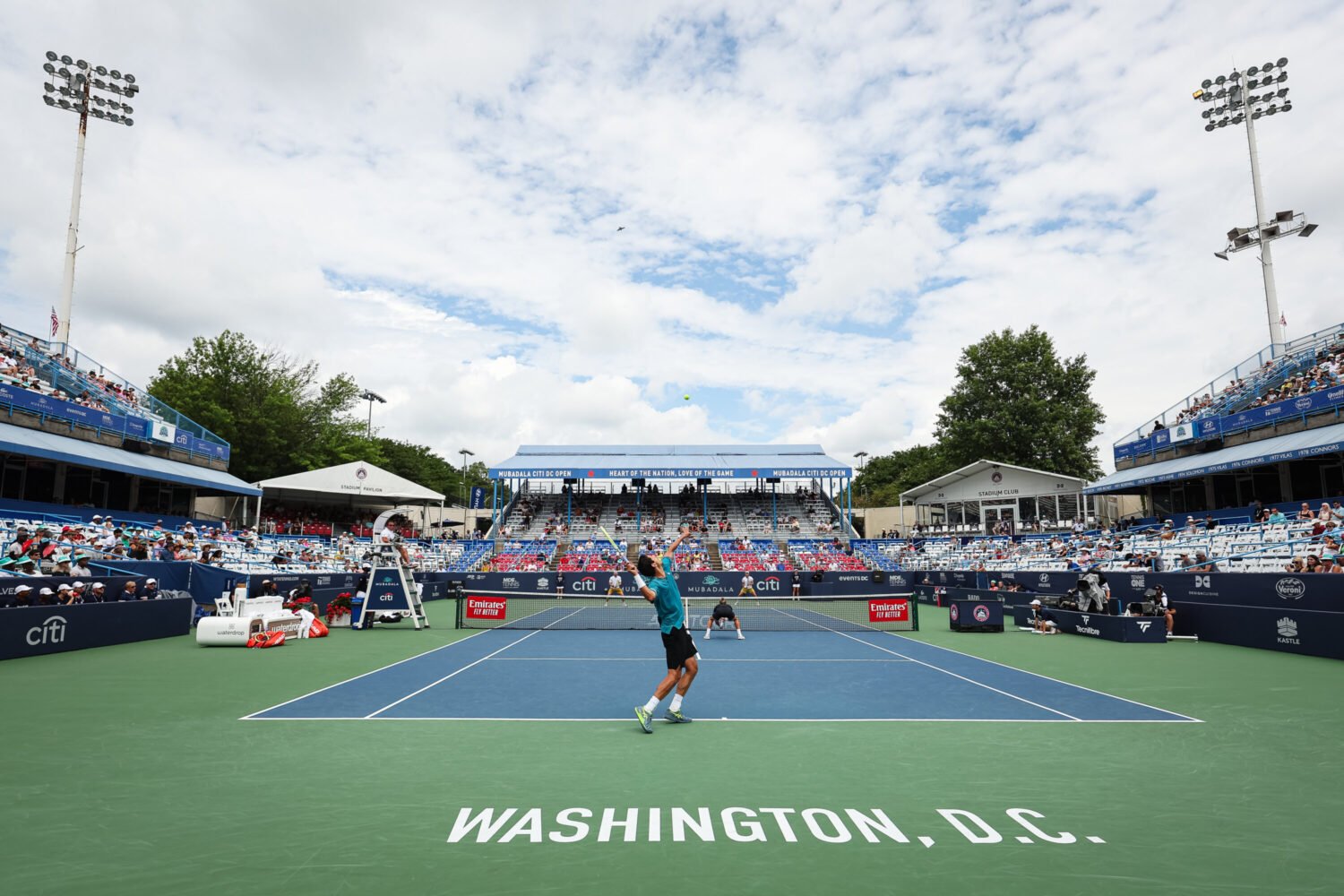Gabriela Fernández-Coffey and Mitchell Hébert in Theater J’s “After the Fall.”
☆☆☆ out of four
When envisioning the ideal place to grapple with existential issues of identity and truth, an airport may not immediately jump out as the perfect location. But in a way, it’s fitting: The act of examining oneself requires not only reflections on painful failures and future uncertainty, but also a closer look at the frustrating tendencies of humanity (which are typically on full display in any terminal or national transit situation). So director Jose Carrasquillo’s decision to stage Arthur Miller’s After the Fall—now playing at Theater J—at the arrival gate of New York’s former Idlewild Airport (now JFK) in the early 1960s makes sense. Protagonist Quentin’s central soul-searching travels—from disturbing childhood memories to the walls of a German concentration camp to the aftermath of his second wife’s recent suicide—land the character and his struggles in empathetic territory.
In a play that revolves around the inner turmoil of a single character, casting the lead is crucial. In this case, Mitchell Hébert is the right man for the job, and then some. The majority of the play’s action and emotion rests on Quentin’s shoulders, and Hébert, a longtime company member at Woolly Mammoth Theatre, takes it in stride with a layered performance rooted in effortless range. Hesitant to commit to promising new love interest Holga (Jennifer Mendenhall, who also appeared with Hébert in Woolly Mammoth’s Clybourne Park) soon after the suicide of his famous and unstable wife, Maggie (Gabriella Fernández-Coffey), Quentin revisits former relationships and his own shortcomings in a kind of confession to the audience, made all the more intimate by Hébert’s sincere portrayal. Fernández-Coffey stands out, too, in an all-around strong cast. As Maggie, she is electric—a self-destructive star whirring out of control.
All of the characters, in fact, tap into the raw emotions circling in and out of Quentin’s recollections, so much so that the show can be hard to watch at times, especially in the intense second act. The out-of-order, stream-of-consciousness structure takes some getting used to, but following a lengthy first act, the combination of suicide, betrayal, morality, addiction, redemption, and other heavy topics reaches an enthralling boiling point. The swell of dark human impulses set against a politically volatile backdrop is nothing new in Miller’s work, and Carrasquillo’s interpretation has a powerful handle on those themes. A cold, concrete-framed stage by Tony Cisek captures the same mood and doesn’t get in the way of the character-driven drama.
Though Miller denied it, critics have long speculated that After the Fall was largely autobiographical. The play debuted in 1964—just two years after the death of Marilyn Monroe, Miller’s own famous, unstable ex-wife—and it touches on other real-life experiences for the playwright, such as his interrogation before the House Un-American Activities Committee in the ’50s. But the connection between the play’s material and the author is not nearly as important in a deeply felt production like this. Quentin’s flaws and fears sound familiar because the action is believable, honest, and thought-provoking. And in a performance tackling the elusive concepts of truth and identity, that’s really what counts.
After the Fall is at Theater J through November 27. Tickets ($35 to $60) are available through Theater J’s Web site.

